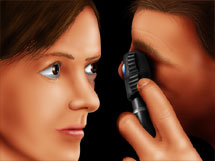By now my summer is almost over. I begin my second year in September, right after Labor Day. It’s gone rather quickly. I know I’m going to miss it.
Part of me is worried that the summer vacation is going to make me rusty as far as studying goes. But I’ve been reviewing Biochemistry. So hopefully sliding into things in a couple weeks won’t be too terrible.
The other day I was driving home from Target with my mom. I mentioned something about having to go back to Loma Linda for an autopsy. I’m not sure how it came out. But she sounded pretty confused as she said, “What?!?”
I think it sounded like I was going in for my own autopsy — like it was one of those before-the-school-year-begins kind of things. Like a physical. So I think I caused my mom to doubt whether she knew what an autopsy was.
But I assured her she knew what an autopsy was and that I was going to view an autopsy — not have one done on me.
I’ll write about it once I’ve viewed it.. But it’ll probably go up at The Differential. So I’ll put up a link then.






